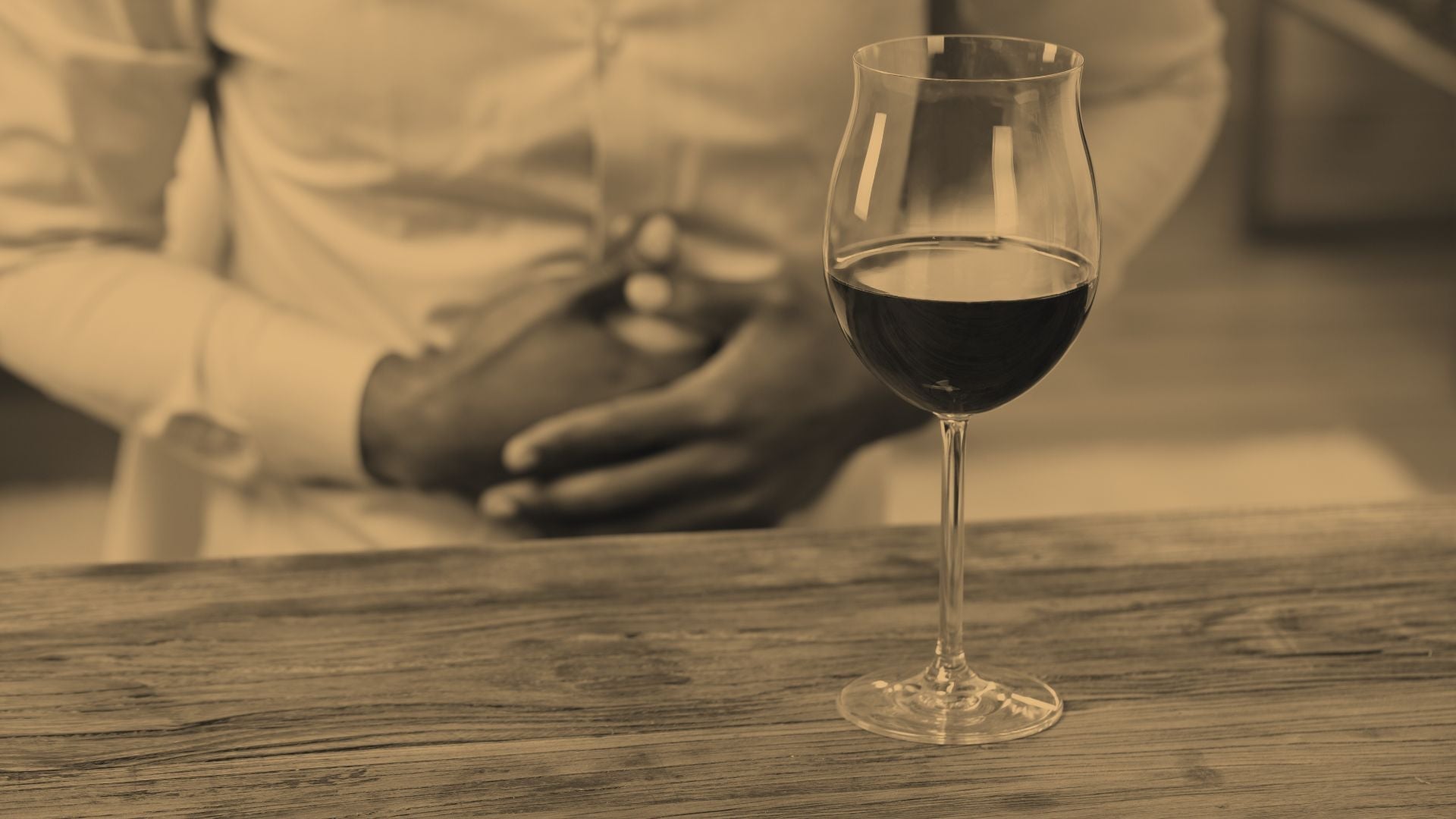
Why Does Alcohol Make Me Bloated?
As fun as it can be to head out for a night on the town, bar hopping with friends—or, for the homebodies among us, to enjoy a quiet night in with a few pals and some drinks—the aftereffects of consuming alcohol can be unpleasant and sometimes debilitating.
One of the most common aftereffects of a night of drinking is bloating: an uncomfortable feeling of fullness in the abdomen as well as water retention and puffiness that can be found throughout the body, but are often most noticeable in the face.
If you frequently experience bloating after alcohol consumption, read on and we’ll explain why that might be the case. We’ll also provide information on potential strategies to minimize this symptom without having to stop drinking alcohol entirely.
Understanding How Alcohol Causes Bloating
There are a couple key mechanisms that explain how drinking alcohol leads to bloating:
Irritating the Gastrointestinal Tract
Alcoholic beverages are irritating to the lining of the stomach and gastrointestinal tract, which can contribute to inflammation of these delicate tissues. This inflammation can lead to gas and symptoms of bloating. It may also lead to an increase in production of stomach acid, further worsening inflammation of these tissues and causing or increasing acid reflux.
Causing Dehydration
Another factor in alcohol-related bloating is the fact that it is a diuretic, which means it makes you urinate more than other liquids like water. This means that high alcohol consumption can lead to dehydration, which the body responds to by holding onto any extra water—unsurprisingly, having all that extra water in your tissues means experiencing more puffiness throughout your body.
How to Reduce the Likelihood of Alcohol-Related Bloating
Now that you know why alcohol contributes to bloating, the next question you might be asking is: how can I prevent or reduce bloating related to alcohol consumption?
Luckily, there are ways to do so without completely avoiding all alcoholic beverages. Here are our top tips:
Drinking Less Alcohol
As we mentioned, there are ways to reduce bloating without entirely avoiding alcohol. One of these is to reduce the amount of alcohol you consume. Moderation is always a good habit to pursue. Refrain from binge drinking to avoid not only bloating, but more severe hangovers (and the associated headaches, anxiety, fatigue, and other unpleasant symptoms) in general.
Avoiding Carbonated Drinks
Since gas contributes to the sensation of bloating in the digestive tract, avoiding the alcoholic drinks that add more gases to your system—especially carbonated beverages, which are full of carbon dioxide bubbles—is one way to reduce this effect. Specifically, you’ll want to avoid drinks like beer, prosecco, champagne, and carbonated mixers.
Prioritizing Hydration
Because alcohol is a diuretic and can contribute to dehydration, it’s important to drink water and other non-alcoholic beverages before, during, and after alcohol consumption. Staying well-hydrated can also reduce your body’s tendency to hold onto fluids and get puffy after drinking, and can also help prevent constipation (which often contributes to symptoms of abdominal bloating). As a general rule, try to drink one glass of water between each alcoholic drink.
Try These Supplements Pre- and Post-Drinking
Along with the suggestions above, there are some supplements you can take to support your body’s innate ability to process alcohol.
Before Drinking: Prepare with Capsulyte’s PREGAME
Dr. Dan Nguyen, MD, MBA formulated PREGAME using a powerful combination of ingredients with scientific evidence for their effectiveness in supporting alcohol processing. These ingredients include:
- NAC, which may make post-alcohol symptoms less severe
- Clovinol®, an antioxidant and anti-inflammatory that can reduce negative feelings after drinking by about 55 percent
- DHM, which is another antioxidant and anti-inflammatory
- Siliphos®, a compound derived from real milk thistle that could offer protective effects against cirrhosis related to alcoholic liver disease
After Drinking: Bounce Back with Capsulyte’s HYDRATION
As previously mentioned, hydration is key to preventing alcohol-related bloating as well as a host of other hangover symptoms, since dehydration is a powerful contributor to many of these symptoms (including headaches, nausea, and more).
But drinking water alone isn’t the most effective way to rapidly bounce back from dehydration. Instead, consider adding HYDRATION to your post-drinking routine to get the optimal blend of sodium, potassium, magnesium, and calcium (AKA Hydra 4G™) you need for your body to function optimally.
HYDRATION also includes:
- B vitamins: May support neurological function, energy metabolism, and blood cell formation
- Liposomal Pureway C™: Offers antioxidant properties to combat free radicals and may support the immune system
- Zinc: Another essential mineral required for healthy immune function
Ready to learn even more about the physiology behind hangovers—and find evidence-based, medically informed strategies for minimizing the aftereffects of alcohol consumption? Check out the Capsulyte blog!


